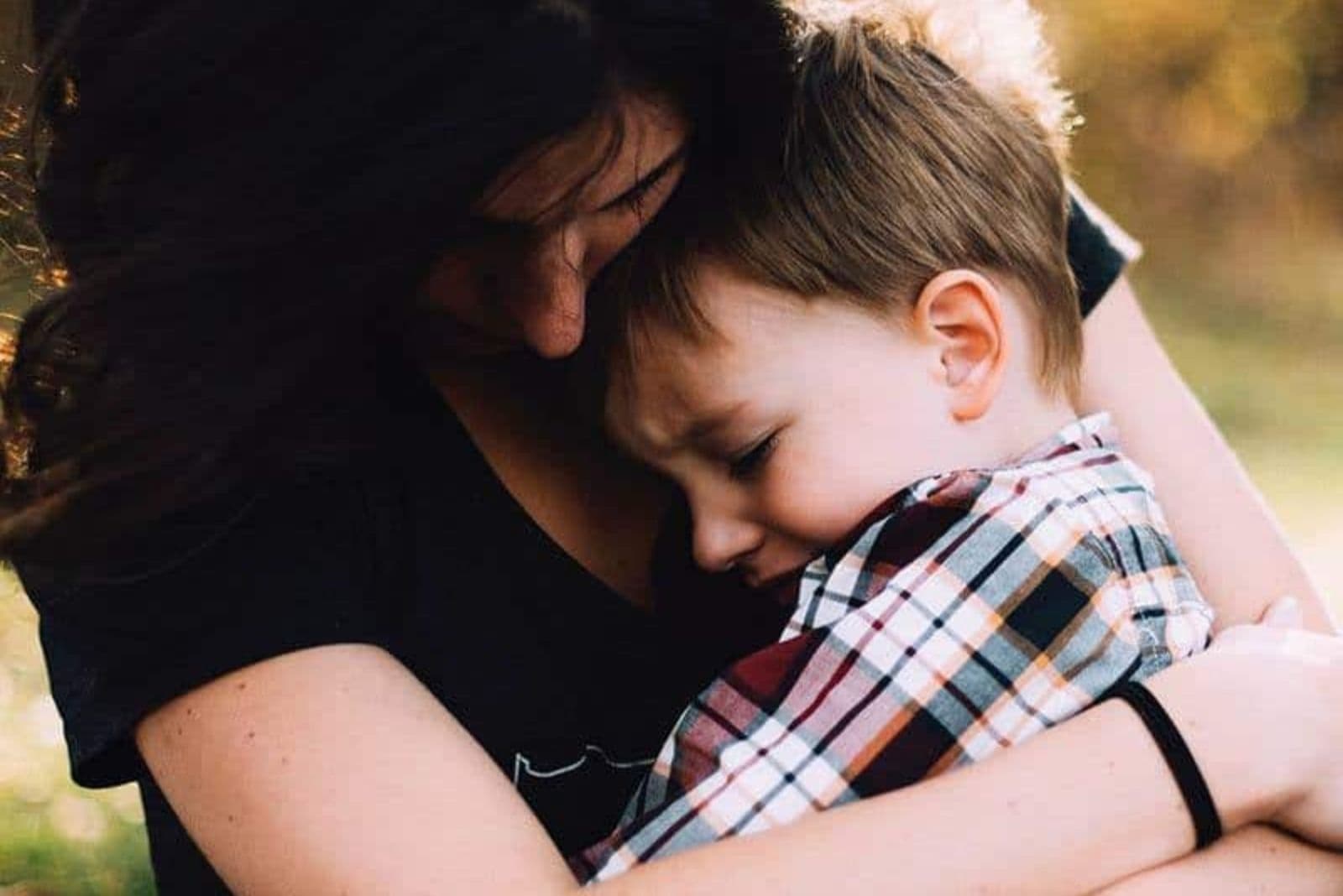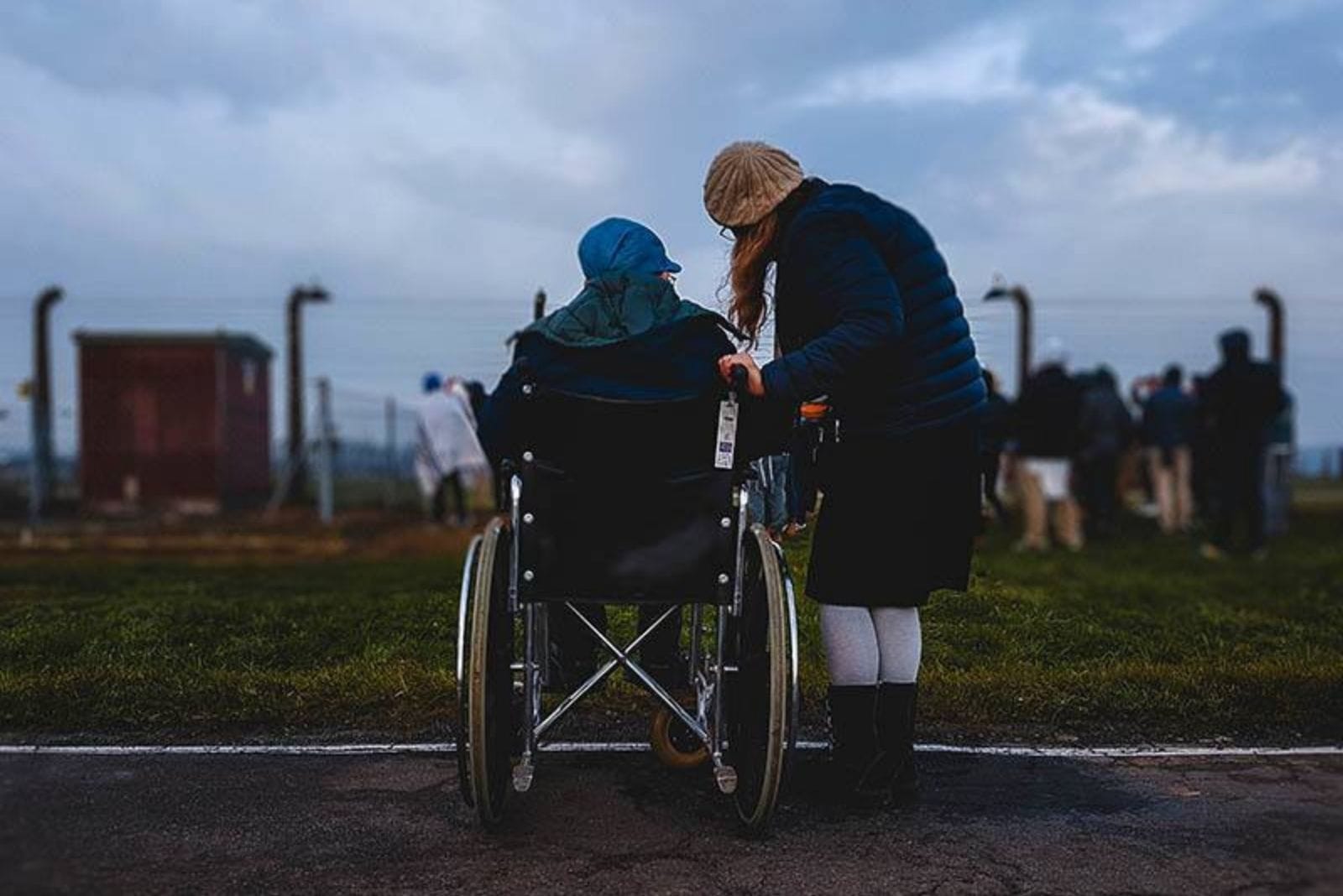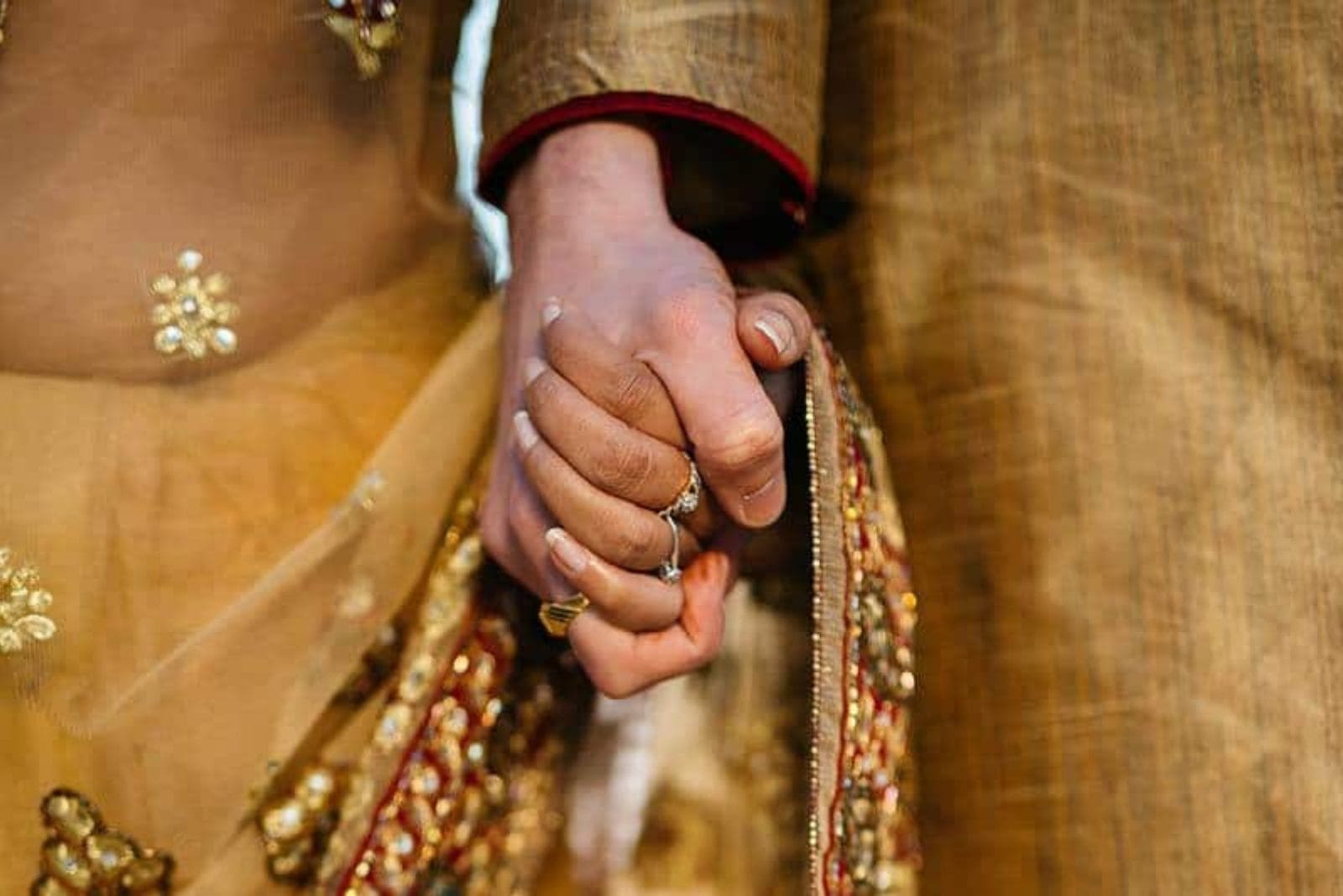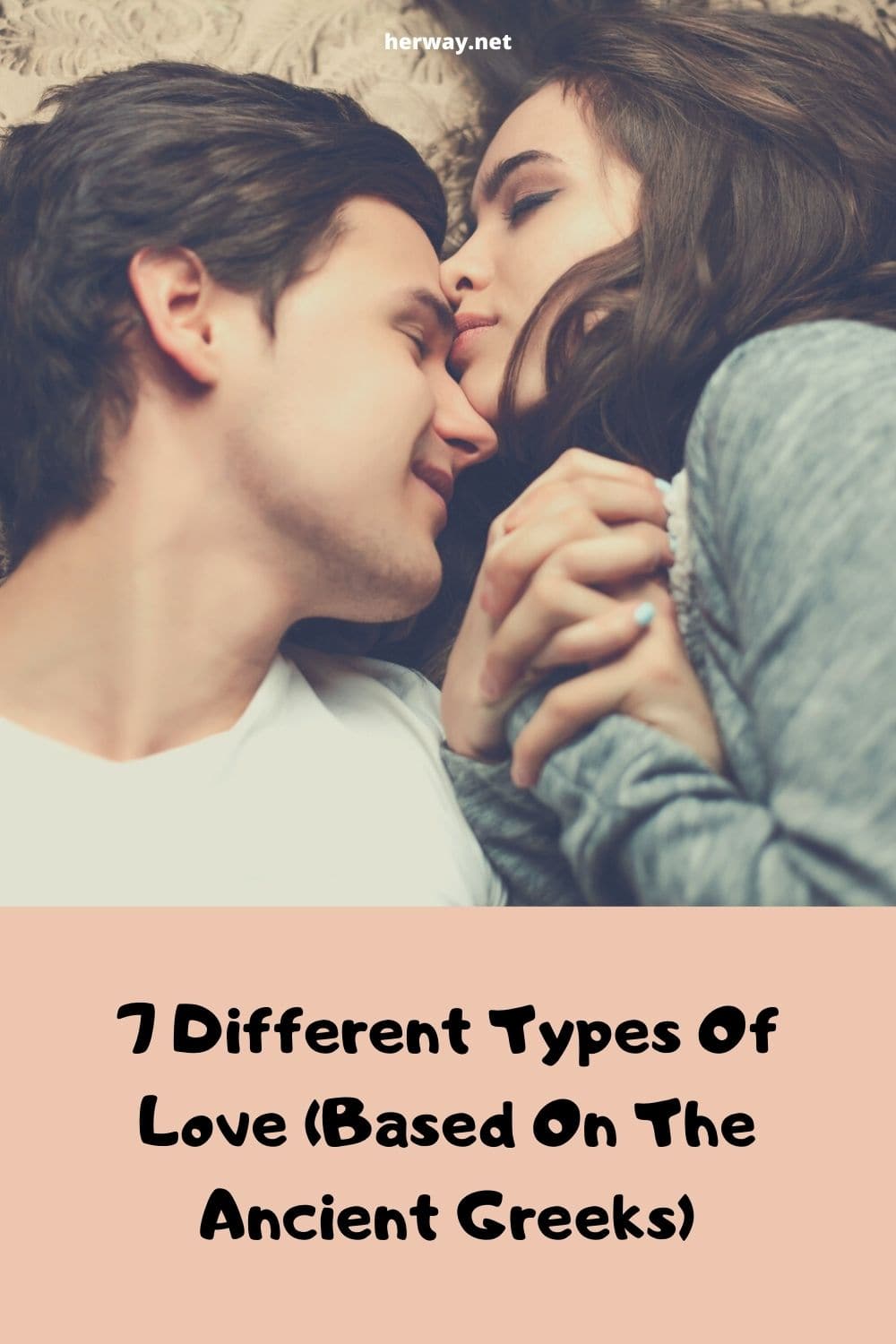7 Different Types Of Love (Based On The Ancient Greeks)
There are so many ways in which you can love but there is only one word for it. Isn’t that sad? There are so many feelings of love, there are so many written poems and love stories but there is only one way to express it.
Maybe it’s just a lack of imagination or we are just using one word powerful enough to capture the beauty of that feeling.
Whatever the case is, the ancient Greeks considered love to be such a broad term that they divided it into seven different types of love. And when you think about it, it makes perfect sense.
When we think about the love we usually have in mind, it’s the romantic love, the kind of love between two lovers. That is something all of us are looking for, the eternal selfless love with another human being.
But what about the love you feel for your friend, love that exists between a brother and sister, or a parent and a child. Those are also types of love but they are called the same and yet they are totally different.
We obsess ourselves with the search for romantic love that we neglect all kinds of other love that are out there. And sometimes when we’re looking for one thing, we don’t realize that we don’t need it. Maybe that other love would fulfill us and would heal us much faster and more efficiently than the love we’re chasing.
The ancient Greeks had seven words for love and every one of them corresponded to a different feeling of love, a different kind of love.
7 types of love, according to the ancient Greeks
Eros (Passionate Love)

Eros is the Greek god of sexual passion and desire. In Greek mythology, he is one of Erotes, the winged gods. Erotes is a group of winged gods in Greek mythology that are associated with sexual intercourse.
It is said that Eros was a son of Aphrodite, the goddess of love. He is also known as the god of fertility. Although today, when people think about Eros, they have positive feelings because he has been stereotyped to represent love.
In fact, in ancient Greece, Eros had a negative connotation. He was considered to be a god of an irrational kind of love, the god of lust and all the bad sides of raw sexual attraction.
It was said that he was dangerous and he could hold on to people and possess them.
His one strike of an arrow could form a madness as it did to Paris and Helen, which eventually led to the Trojan War. His arrow made a person ‘fall’ in love but actually, it would mess with their mind and make them irrationally and dangerously possessive and lustful.
In ancient times, people were afraid of Eros and his powers which is funny because today all we seem to look for is a person to fall madly in love with, beyond any reason.
That is exactly what Eros did to people in Greek mythology and he was considered dangerous. But today, in modern times, it seems that all we want is to lose control and let passion lead the way.
Philia (Friendly Love)

Philia is love that friends have for each other. Now, Philia can be interpreted in two ways. First, it can be only the friendship born out of goodwill, meaning you’re doing something for a friend because you care for them.
You’re not getting anything in return. It’s pure and selfless love.
But secondly, Philia can also be born out of Eros. It is said that the greatest friendship is the one between two lovers. When passionate love grows into mutual understanding and a mutual search for something higher, it turns out to be Philia.
In ancient Greece, the most valued love of all was Philia. It developed between soldiers in battles who fought together.
It was selfless love, the one you had nothing to gain from. It was about sacrificing yourself for a friend, staying loyal to them and showing your true emotions.
How many friends like this do you have in your life? Ignore Twitter, ignore Facebook, how many true, loyal friends do you have by your side according to the Greek terms of friendly love? It gets you thinking, doesn’t it?
Storge (A Parent’s Love)

Storge is the type of love that exists between a parent and a child. It’s a subtype of Philia because it’s almost the same, especially during the phase when the children are younger. But unlike Philia, Storge doesn’t depend on your personal qualities.
It’s a type of love that exists because of dependency and familiarity. You can’t choose your family, you are born into it and you love them no matter what.
When in a relationship, we are looking for Philia and Storge but we get it only if we are lucky enough. Most of us end up with just Eros. But when Eros mutates into Philia, then after years of being with each other, you and your partner can develop Storge.
Agape (Selfless Love)

Agape is selfless love, a love you have for everyone, for nature, for God. It’s an unconditional love and the closest term to describe Agape is charity. It’s about loving someone without getting any personal gain.
It’s a form of love for your family member or complete strangers, it doesn’t matter. The love you have is the same toward everyone.
In Christianity, Agape or charity is the highest level of love you can give. According to Christianity but also to other religions, charity and selfless love should be the way of life. You should help someone you know or a stranger on the street if you see they are in need.
We should actually all try to live like that. Not because someone said it is a good way to feel closer to God but because our love for everyone, our Agape, has the power to heal a random person and ourself.
Agape is a love for the greater good but sadly, the level of this kind of love has decreased dramatically. People have stopped showing empathy. More and more of them are selfish, only trying to make a good life for themselves, not caring for anyone else.
Ludus (Young Love)

Ludus is connected to Eros but it’s much more innocent. It’s also about passion and the physical but it’s not as dangerous. It’s a form of love that appears between two young lovers. That love is playful and, most importantly, sincere.
Ludus relationships are not serious, there is no commitment. It’s just about having fun and enjoying yourself for as long as it lasts. If it ends, you’re happy you had it.
When you first fall in love with someone, that honeymoon phase, that craziness you’re feeling, that’s Ludus. If Ludus continues for some time, it can grow into Philia.
People should hang on to Ludus because most long relationships lose that playfulness over time and become too serious, with only problems coming their way after some time.
Pragma (Practical Love)

When two people have the same interests and the same goals, which they can achieve much easier if they are together, then that love is called Pragma. It’s a practical type of love and the most common place to find it is in arranged marriages.
People don’t often practice arranged marriages but in the past, it was a completely normal thing to do. Royalty got married to keep the royal blood intact. People got married because of political connections. Wealthy people married into wealth to keep and add more land to their wealth.
And even though those two people didn’t love each other in the beginning, the relationship worked over time because of the compromises for a greater cause.
It’s easy to fall in love but in modern times, people have difficulty staying in love. Pragma is about staying in love, about learning to make exceptions for the other person, about tolerance and respect. And when you think about it, all of these are the key ingredients to preserving a true relationship.
Many relationships start out as Eros or Ludus but end up as Storge or Pragma. At least it should be like that but most of them fall apart in the first stages and never get to grow to become a real, serious type of love.
Philautia (Self-Love)

This love can be good or bad for you. It depends on how you look at it. Some people think that self-love is about being selfish and looking out only for your own well-being. They think they can put themselves above all others. That is the bad kind of self-love.
The good kind of self-love is taking care of yourself just as well as you take care of others. It’s about being kind to yourself and never ignoring your own needs. Because when you grow to hate yourself, you can’t love anyone else.
The ancient Greeks thought of love in different types. But all of these types can turn from one into another. They can evolve.
And in the end, when you finally find the right person you’re going to spend the rest of our life with, you’ll go through all of the types of love with them. You’ll have physical attraction, playful love, respect, a friendly love, a common goal and above all, you’re going to love yourself.








